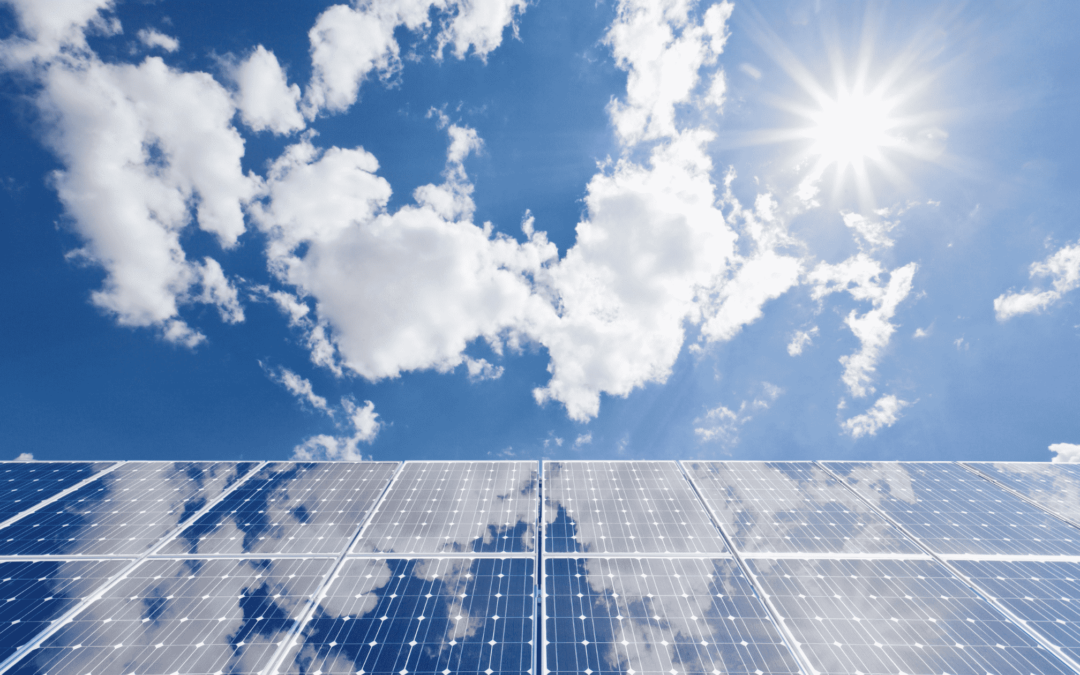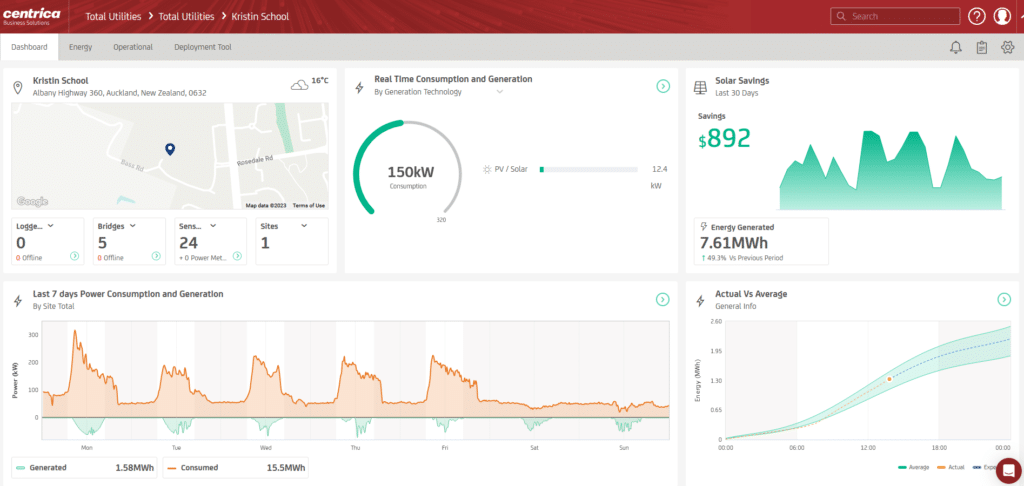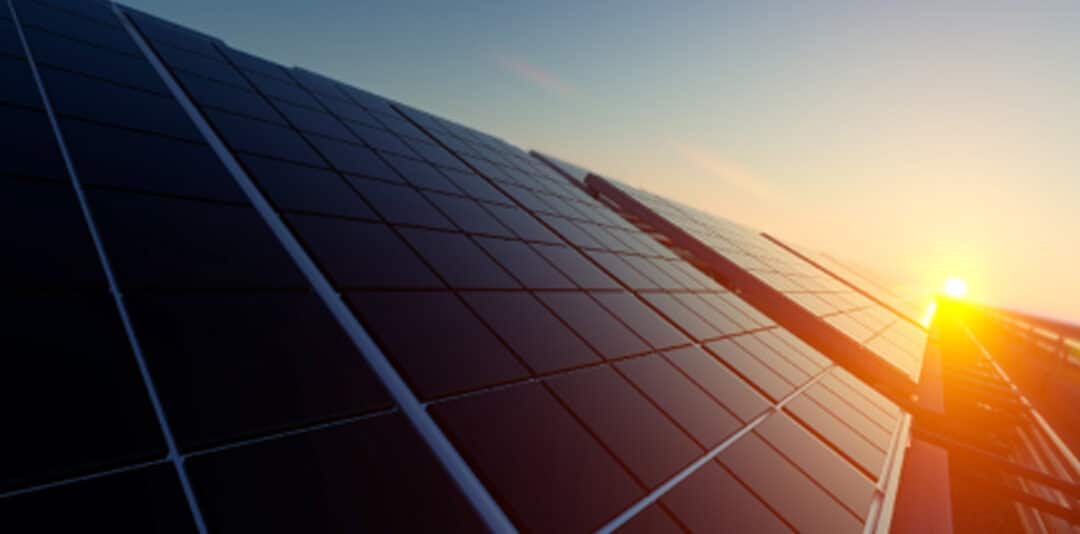
by Chris Hargreaves | Dec 6, 2023 | Carbon Sustainability, News, Solar Power
Here at Total Utilities, we’re putting on our eco-goggles to dissect Santa’s eco-efficiency (or lack thereof). Hold on to your elf hats because Ethical Ocean has unwrapped the numbers, and let’s just say, Santa’s sleigh ride isn’t exactly carbon-neutral!
Santa’s mileage: over 122 million carbon miles!
It’s no secret that Santa’s worldwide jaunt covers a whopping 122 million miles, but did you know it also churns out a staggering 69.7 million metric tonnes of carbon emissions? Ho-ho-hold on, that’s a lot of CO2!
Ripping Open Santa’s Carbon Wrapper
Ever wondered where the bulk of Santa’s carbon overload comes from? Surprise, surprise – it’s the toys! A hefty 68.1 million tonnes of Santa’s emissions stem from toy production, packaging, and toy disposal.
But hey, we’re not asking him to become the Grinch. Instead, we’re suggesting a workshop glow-up – solar-powered LEDs anyone? Maybe a little lighting inspiration from local company ELVO Solar could spark that North Pole magic?
Rudolph and the ‘Not-So-Naughty’ List
Even Rudolph and his reindeer buddies, magical as they are, clock in 53,667 metric tonnes of CO2 emissions. But don’t fret! That’s about the same amount of methane they naturally produce. It’s almost like Santa’s got his very own emission balancing act up there in the sky!
Sleighing carbon
So, all things considered, looks like it’s time for Santa to upgrade his ride. Perhaps a sleek, carbon-neutral sleigh with a ‘reinvented’ GPS that navigates the greenest routes?
Add in some locally-sourced magic dust, a factory powered by elf-generated energy, and voilà! Santa’s workshop – a hub of recycled dreams and eco-cheer!”
And Santa, (we know you’re a regular reader!) if you need any more suggestions to sleigh those carbon woes, take a look at our Carbon Insights service to effortlessly measure, reduce, and report carbon emissions while optimising your business for profitability. Why not have a read of our Carbon Insights Brochure, or just call us? 📞🎅
Explore Ethical Ocean’s damning full report card on Santa below:


by Chris Hargreaves | Jul 7, 2023 | Case Studies, Solar Power
Total Utilities partners with Kristin School to provide real-time monitoring of solar panel performance with our world-class energy monitoring solution.
- Measuring and analysing solar power to calculate return on investment (ROI).
- Tracking energy savings & identifying opportunities for improved solar performance.
- Providing educational opportunities for students with solar lab to monitor real-time generation.
- Helping Kristin School reduce reliance on grid and achieve sustainability goals.
Kristin powers its way to brighter, greener future
Kristin School in Auckland has been committed to sustainability for many years, with a target of reducing carbon emissions by 50% by 2030.
The school first began installing solar panels in 2019 as part of a sustainability initiative named ‘The Lightbox Project.’ Two years later, they called upon Total Utilities for a full solar review and to recommend a service provider for further solar installations to extend the solar project.
That done, the next step was to call upon our expertise to help them measure and quantify real-time solar generation and measure sustainability gains.
Using Centrica Business Solutions’ energy insights technology, Total Utilities was able to assist Kristin gain invaluable insights into solar power generation, whilst also providing amazing real-life learning opportunities for students with a solar monitoring lab.

Delivering competitive advantage with real time energy monitoring
- Total Utilities has an exclusive partnership with Centrica Business Solutions to deliver its Panoramic Power energy insights solution.
- Panoramic Power provides world-class energy visibility and intelligence using wireless sensor technology that transmits data from all energy-using equipment in real time to the Cloud.
- Our expert team analyses data to provide cutting edge energy insights and advice to deliver cost and energy savings for clients.
- Panoramic Power is quick to install, requires no maintenance and is a revolution in energy management.
Basking in solar
Working together with Total Utilities, Kristin School has gained important insights into the benefits of its solar investment:
- Increased sustainability. Total Utilities has been able to provide real-time insights into energy savings – a major step forward in helping the school measure its carbon footprint and achieve its goal of becoming carbon neutral.
- Reduced power consumption. Energy insights provided by Total Utilities show exactly where and when solar energy is being generated, providing reassurance on return on investment.
- Carbon credits. Kristin can now accurately calculate excess solar generated, earning carbon credits to offset the school’s carbon emissions and generate revenue.
- Educational opportunities. The ‘Power Radar’ dashboard is an invaluable educational resource for students to learn about how solar energy can be used to power schools, businesses and homes.
Kristin School’s glowing report card for Total Utilities
Director of Business Services for Kristin School, Nigel Wilkinson said;
“The energy insight tools provided by Total Utilities have enabled us to measure solar power generated building by building, and the dashboard is so quick and easy to use with no training. Before it was installed, it was difficult to have confidence in exactly what was being generated and used.
As well as reassuring us about the ongoing viability of solar panels, the solar dashboard now enables me to confidently report back to the school board on our solar performance.
Additionally, the solar lab provided by Total Utilities is an excellent educational tool for students, allowing them to assess data and learn about renewable energy for projects and assignments.
All new buildings and upgrades now include solar panels. I can only see an increase in student and parent interest in renewable energy, and it’s important for us to be able to report on our commitment to reducing emissions and improving sustainability both now and in the future.”
A greener future for our children
Total Utilities energy insights and reporting capability allows Kristin School to determine exactly how energy is consumed and potentially wasted on campus.
This is an important step forward for schools such as Kristin who require an affordable, data-driven solution to reduce waste and carbon emissions in order to meet the government’s goal of NetZero emissions by 2050.
Armed with energy insights provided by Total Utilities, schools and businesses can accurately measure cost-savings and environmental benefits of solar.
Our energy insight services are ideal for any school or business wanting to reduce costs and carbon emissions, drive efficiency and ensure reliability of power.
With the clock ticking on a global environmental crisis, harnessing renewable solar energy is a great step forward to ensure a brighter, greener future for our children.
Keen for your business to enjoy similar outcomes? Email us at [email protected]
Kristin School Case Study Download
by Chris Hargreaves | Jan 24, 2023 | News, Solar Power

As energy prices continue to surge and volatility reigns in the market, could now be the time for your business to bask in the cosmic power of solar?
Take a moment to factor in the potential cost savings, reputational benefits of clean energy, and the carbon savings your business can achieve – and it’s definitely worth taking a look. Or maybe even a second look if you haven’t considered it for a while.
Solar landscape changing
Total Utilities Director Chris Hargreaves said, “The landscape of how a company can integrate solar is changing and there are more options becoming available.
“While we continue to provide solar audits, and can design and install fully customised solar power systems, as well as advise on how to quantify carbon savings – we’ve also developed a hybrid solar option for our clients. This solution is a power procurement option that incorporates buying solar direct from a solar farm.”
Hybrid solar solution
NZ’s first solar farms aren’t expected to start connecting to the grid until somewhere between August or September this year, but Total Utilities’ hybrid plans enable clients to buy direct from a solar farm now using a power purchase agreement. This can then be combined with supply from their traditional energy retailer.
The solar gets supplied to the retailer, for example Mercury or Genesis, who can package it all up together and bill a hybrid price. Using this procurement solution, Total Utilities creates significant cost and carbon savings for our clients.
As Chris explained, “Some of the ten year prices we’re getting from solar generators are 11 cents a kilowatt. When you compare that to what power suppliers are delivering during peak periods – some months it’s close to 30 cents per kilowatt. So you can achieve quite a decent amount of savings with these hybrid plans.”
To simplify things, let’s take a look at three basic models of power procurement:
Here’s the traditional – vanilla if you like – method of power procurement direct from a power supplier AKA Meridian, Mercury et al.

This second model enables you to use your own generated rooftop solar topped up with power purchased from your power company in order to meet your total power demand.

The third, hybrid option means us arranging contracts where clients buy solar direct from solar farms to use in combination with your supplied electricity.

“The beauty of buying solar as a commodity is that even if you relocate your business site, you can still keep buying solar as it’s not tied to your location,” said Chris.
“So buying solar from a farm will be particularly attractive for customers who lease their premises or are likely to move – or for those who just don’t have a particularly feasible site.”
An array of solar services!
Total Utilities also provides solar feasibility audits to help identify whether actually installing solar power could be a good option for you. Our recommendations include a detailed analysis of cost benefits of solar versus implementation costs.
Chris explained that installing a solar array can lead to up to 25 to 40% reduction in energy usage, which results in reduced carbon liability from grid supplied energy. Then there’s the savings of 10 to 30% on total electricity cost – although this varies depending on how much energy is used at night and what the energy costs are for the given site.
This is a big saving when you consider that electricity is likely to be one of the top three expenses a business faces.
Boom time for solar
It appears that after some delay, the solar boom is finally on its way in New Zealand – following in the footsteps of other countries like Australia, where solar has almost 30% market share, and the US, which is aiming to generate 50% of its energy from solar by 2050.
Whether you’re making it or mixing it – solar is shaping up to be the way of the future to save carbon, money and the planet.
Sign up below for Total Utilities Market Commentary to receive all the latest market news and insights.

by Chris Hargreaves | May 26, 2022 | News, Solar Power
It’s cheap, it’s reliable and it’s not running out anytime soon. So the burning question remains – why isn’t commercial solar as hot as… well, the sun?
Today, the business case for solar is becoming more and more compelling when it comes to commercial use. It’s not only good for the environment – it’s also good for your bottom line.
With electricity prices going through the roof, solar represents a cheap alternative to cut ongoing power costs and hedge against future electricity price increases.
Indeed, solar gets more viable by the day when you consider the gains you receive in terms of ensuring budget stability with predictable, self-generated solar costs. Then there’s the add-on benefit of being able to more accurately forecast operating power expenses.
So, what’s holding businesses back?
Total Utilities Director, Chris Hargreaves, believes it could be down to the perception that the return on investment is too long.
But Chris explains Total Utilities can provide various funding options which make the transition cost neutral, so it doesn’t have to add to overall business debt. And over time of course, you have the ongoing benefit of cheap and sustainable solar.
More viable and better value for money
“Return on investment is now under seven years for a commercial solar array, so it’s becoming much more viable and better value for money for business use,” he says. “Even in the last 12 months, conditions have changed with electricity prices going up and the cost of solar coming down.”
“Reducing your reliance on the grid and generating your own electricity onsite, gives you a strategic advantage and means you can become master of your own destiny, mitigating against energy price volatility.”
Smart with solar
Chris explains that solar users can also get smart with how they use their self-generated power. For example, they can discharge their solar battery at peak times to avoid peak grid rates, as well as generate revenue by selling excess solar energy back to the grid.
Other major benefits include solar being an easily maintainable, consistent power source – providing uninterrupted supply during power cuts. It’s conveniently scalable too, so you can further reduce up front costs by growing your system with your business over time.
Goodwill of going green
And you can’t underestimate the goodwill generated by being perceived as a ‘green’ business as more and more customers turn to companies putting sustainability at the heart of their operations.
Indeed, when it comes to bidding for contracts, sustainability is becoming central to doing business in many sectors, with clients giving considerable weight to sustainability credentials when it comes to awarding contracts.
So, it seems the jury is no longer out when it comes to solar. It’s time to bask in its uninterrupted glory.
With the list of benefits including cost saving, controlling utility costs, reducing your carbon footprint, providing uninterrupted power and being easily maintained and scalable – all at the same time as showcasing your eco-friendly creds – only one question remains…
When are you going to join the new power generation?
Download this guide for the benefits and how we can have solar plan for you!
Total Utilities-Powering your business with solar
- Find out more about your solar options by contacting us at Total Utilities.
Sign up below for Total Utilities Market Commentary to receive all the latest market news and insights.









